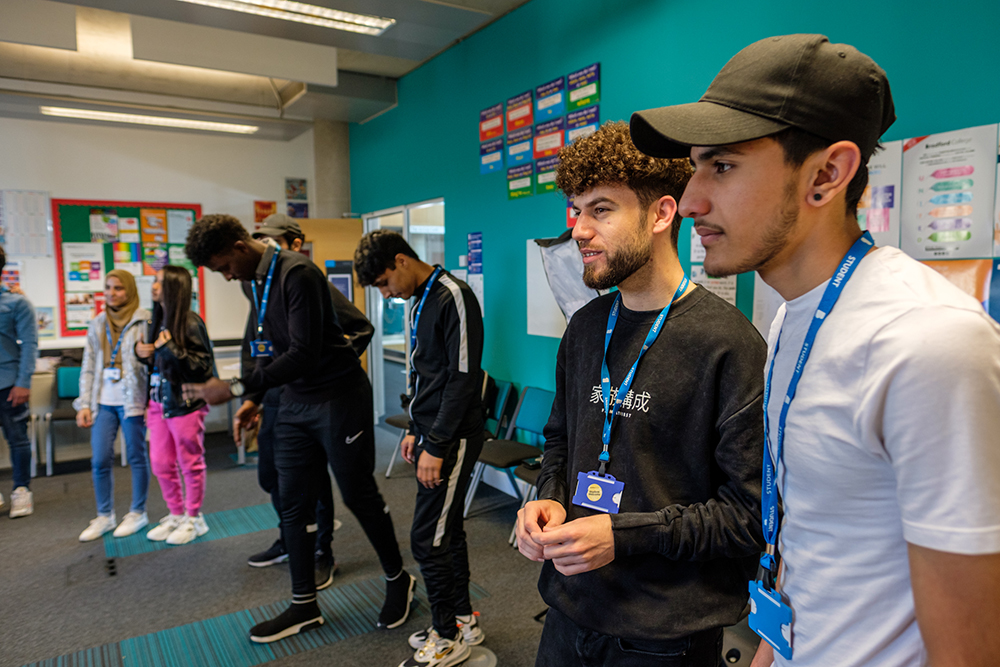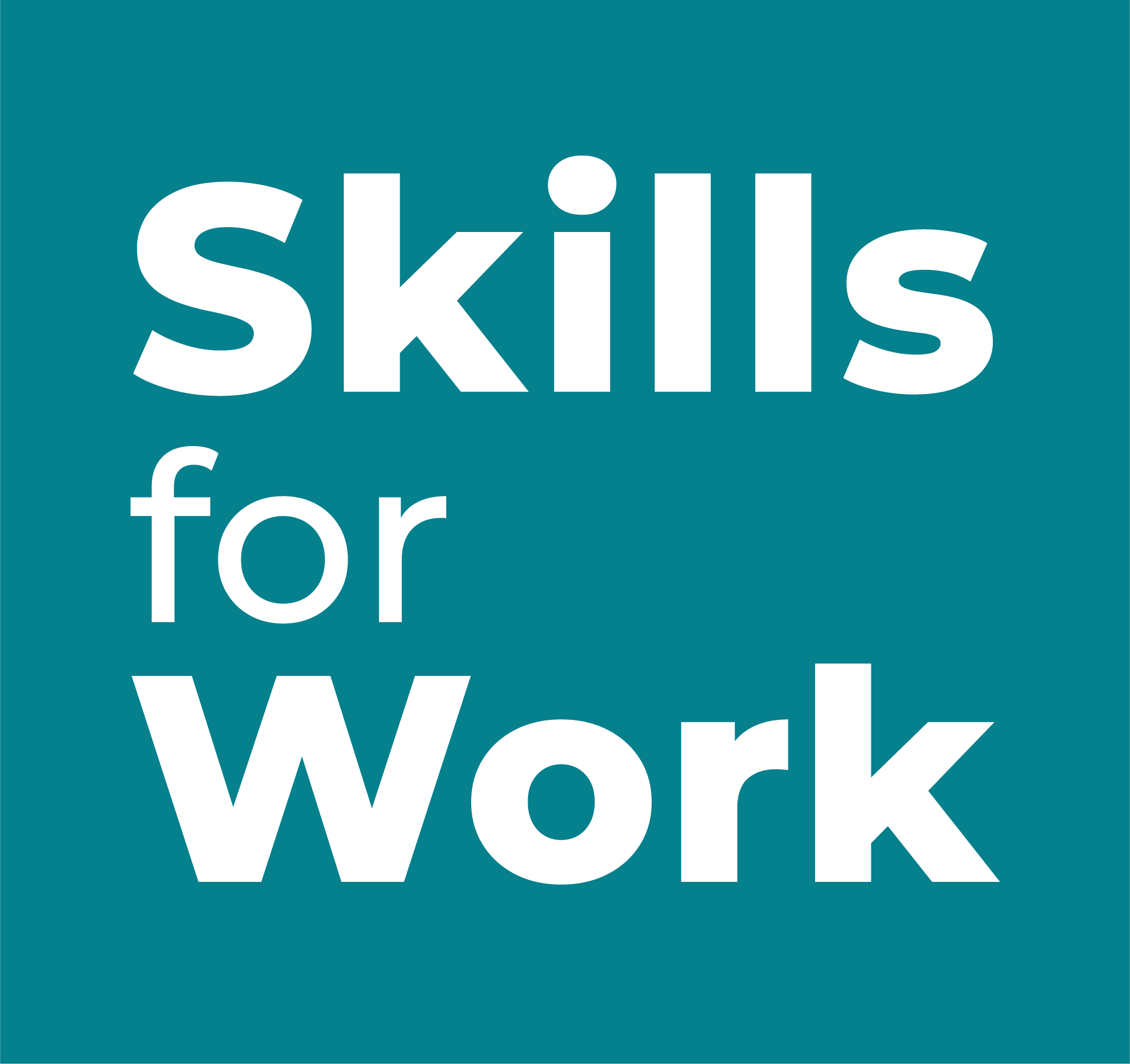
The pathways approach to local careers and skills development
Core careers and sector learning pathways offer a structured way to explore related occupational areas within key industry sectors. In the Bradford District, we focus on 15 distinct sectors, working closely with local businesses and organisations to ensure our approach is shaped by real-world industry needs.
Each pathway identifies essential knowledge and skills validated by employers, forming the foundation for programmes of study that are both practical and future-focused. By using a standardised framework, we aim to:
- Provide a clear and coherent structure for careers education that keeps pace with rapid technological change and global developments
- Foster meaningful collaboration between educators and employers to address current and future workforce needs
- Align secondary and post-secondary curricula with industry expectations, creating flexible pathways with multiple entry and exit points
- Offer students hands-on learning experiences, working alongside professionals and educators on real-world challenges using cutting-edge technology
- Support young people in making informed choices about subjects and qualifications that align with their aspirations and local opportunities
- Guide students beyond school into college, university, and fulfilling careers through clearly defined learning routes
- Enhance career guidance with insights from up-to-date labour market trends, helping students make confident decisions about their futures
This approach helps teachers connect classroom learning with real-world applications, making education more relevant, engaging, and impactful for every student.

The Framework
Agriculture, Environmental and Animal Care
- Animal Care & Management
- Civil & Environmental Management
- Land Management & Production
- Food Science
- Horticulture & Arboriculture
Creative Industries
- Film, TV, Video, Radio & Photography, Publishing
- Museums, Galleries, Libraries & Heritage
- IT, Software & Computer Services (Creative Tech)
- Animation, VFX (Visual Effects), Video Games
- Music, Performing & Visual Arts
- Design (Product, Graphic & Fashion)
Information Technology & Digital Services
- Information Support & Services
- Networking
- Software & Systems Development
- Games & Simulation
Transport, Distribution & Logistics
- Facility & Mobile Equipment Maintenance
- Health, Safety & Environmental Management
- Logistics, Planning & Management Services
- Sales & Service
- Transportation Operations
- Transportation Systems/Infrastructure Planning, Management & Regulation
- Warehousing & Distribution Centre Operations
Architecture & Construction
- Design, Planning, Engineering, Surveying & Procurement
- Earthworks, Demolition & Deconstructions
- Off-site Manufacture & Logistics
- Structural, Civil, Commercial & Project Engineering Management
- Fixing, Finishing & Utilities Operations
- Repair, Maintenance & Management
- Customer Service & Sales Support
Manufacturing & Engineering
- Product Innovation, Design & Development
- Health, Safety & Environmental Assurance
- Logistics, Process Control & Development
- Manufacturing & Engineering Production
- Maintenance & Installation
- Quality Assurance
Energy, Environment & Utilities Technology
- Environmental Resources
- Energy & Power Technology
- Telecommunications
Health Science & Medical Technology
- Biotechnology Research & Development
- Diagnostic Services
- Health Informatics
- Support Services
- Therapeutic Services
Health & Social Care, Adult & Child Services
- Adult Health
- Adult Social Care
- Early Education
- Childhood Health
- Children’s Social Care
Education & Training
- Administration and Administrative Support
- Professional Support Services
- Teaching/Training
Public Services & Law
- Probation Services
- Emergency Response
- Legal Services
- Government & Public Administration
- Foreign Service
- Governance
- National Security Planning
- Public Management & Administration
- Regulation
- Revenue & Taxation
Hospitality, Tourism & Sport
- Restaurants & Food/Beverage Services
- Travel & Tourism
- Food Science, Dietetics & Nutrition
- Hospitality, Tourism & Recreation
Finance
- Accounting
- Banking Services
- Business Finance
- Insurance
- Securities & Investments
Business Management
- Administrative Support
- Business Information Management
- General Management
- Human Resources Management
- Operations Management
Marketing Sales & Services
- Marketing
- Professional Sales
- Entrepreneurship/Self Employment

The Framework cont.
This framework is designed to support teachers at every stage of education with clear, age-appropriate examples that bring essential skills to life in the classroom.
Early Years (EYFS)
- Play-based, exploratory learning that nurtures curiosity and foundational skills
Primary
- Structured activities and role-play to build confidence and collaboration
Secondary
- Subject-specific strategies and real-world applications to deepen understanding
Post-16
- Focus on independent learning, leadership, and workplace readiness
Evidence-Based Pedagogical Strategies
Bring skills to life with proven teaching methods:
- Metacognitive cycles: Plan, Monitor, Evaluate – helping students think about their thinking
- Practical tools: Use KWL charts, exam wrappers, and collaborative tasks to boost engagement
- Curriculum integration: Embed creativity in maths, critical thinking in science, and more
Aligned with Broader Learning Goals
This framework doesn’t just teach skills—it supports whole-child development:
- Meets Gatsby Benchmarks for careers education
- Fosters a growth mindset, self-efficacy, and resilience
- Promotes inclusive practices and cultural awareness
How You Can Use the Framework
Whether you're just starting or refining your approach, the framework is flexible and practical:
- Audit your current provision: Spot where skills are already being taught
- Embed into lessons: Use examples and strategies to enhance your curriculum
- Track progression: Assess skill development over time with clear outcomes.
- Collaborate: Partner with colleagues, employers, and the community
- Reflect and adapt: Use feedback and case studies to evolve your practice
Interested in a copy of the Framework or have questions?
We’d love to hear from you—get in touch to explore how this can support your teaching.

The Bradford Essential Skills Framework
The Bradford Essential Skills Framework is a powerful tool designed to support teachers in preparing students for life beyond the classroom. Rooted in three overarching themes—Learning & Innovation, Life & Careers, and Social & Cross-Cultural Understanding—this framework equips students with the skills they need to thrive in a rapidly changing world.
At its heart are 8 Essential Skills, each clearly defined and supported with developmental guidance and practical strategies tailored to every educational stage. These skills are not just abstract concepts—they’re actionable, teachable, and deeply relevant to everyday learning.
The 8 Essential Skills
-
Communication & Collaboration
Encourage students to express ideas clearly, listen actively, and view mistakes as valuable learning opportunities -
Leadership & Responsibility
Foster ethical decision-making, positive influence, and a strong sense of community contribution -
Creativity & Innovation
Inspire original thinking and problem-solving through creative exploration and resilience -
Critical Thinking & Problem Solving
Develop logical reasoning, analytical thinking, and reflective learning strategies -
Productivity & Accountability
Help students set goals, manage their time effectively, and take pride in producing high-quality work -
Social & Cross-Cultural Skills
Promote empathy, respect for diversity, and inclusive practices in every classroom interaction -
Flexibility & Adaptability
Support students in navigating change, overcoming setbacks, and embracing new roles with confidence -
Initiative & Self-Direction
Cultivate independence, goal-setting, and a proactive approach to personal growth and learning
Why It Matters for Teachers
This framework isn’t just about preparing students for the future—it’s about enriching your teaching today. With clear guidance and practical tools, it helps you:
- Embed essential life skills into your existing curriculum
- Support holistic student development
- Foster a classroom culture of curiosity, resilience, and respect


